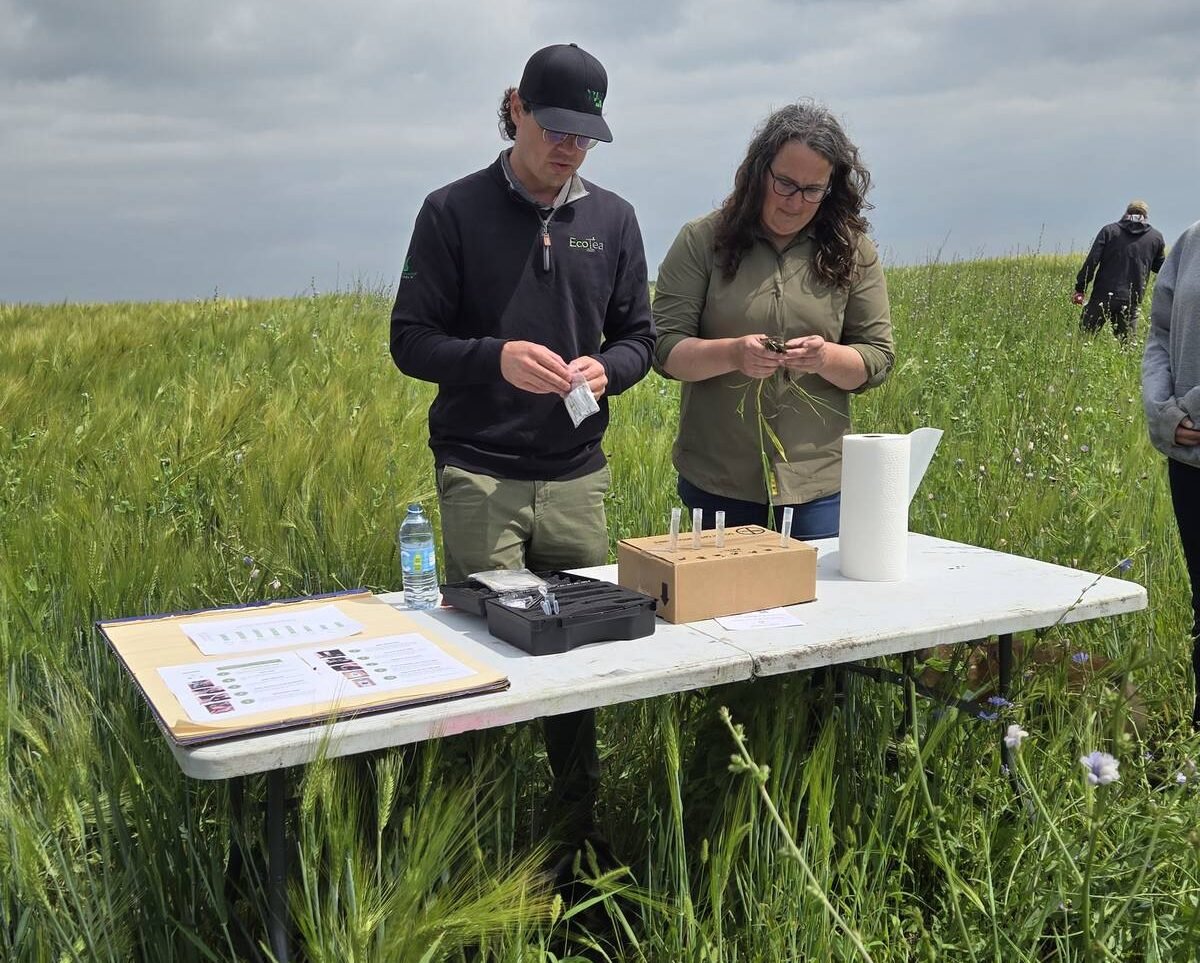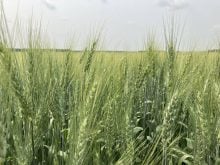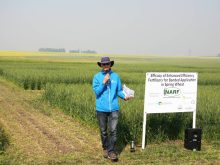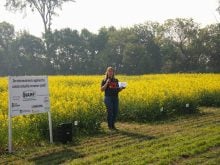The first results coming out of a Manitoba Beef and Forage Initiatives dive into biostimulants looks promising.
The western Manitoba demonstration research farm is testing out EcoTea, a biological soil treatment marketed for its broad range of microbe diversity on forage crops.
MBFI applied EcoTea treatments to cereal crops at its Johnson farm site just north of Brandon, comparing treated and untreated plots across 73 acres of Haymaker oats, barley and other forage varieties.
Read Also

Why feds imposed EV tariffs
Moe and Kinew have a fight on their hands when it comes to eliminating the EV tariff. Canada has to worry about pissing off the U.S. and Mexico and hundreds of thousands of auto workers.
“We did see the trend of the Haymaker doing pretty well,” general manager Mary-Jane Orr said during a field day earlier this summer.
“We did see some results where they’re trending towards higher, slightly higher yield where they had the EcoTea versus where they didn’t.”
The results should still be taken with a grain of salt, however. While plots treated with EcoTea showed modest yield advantages, the statistical significance was limited by field variability.
Neal Wagar with EcoTea said the company’s products contain more than 100,000 different microbial species, including fungi, bacteria, protozoa and nematodes.
“It’s extremely diverse, which is why we find it effective,” Wagar said.
The seed treatment is applied as a dry powder, which is then mixed with the cereal seed before planting, similar to soybean inoculant.
“Depending on what you’re seeding, if it’s going up the auger into the truck, guys will just sprinkle it on as it’s going up. We have prescribed rates … but really, when you’re just sprinkling it on up the auger, it’s pretty simple,” Wagar said.
Product trials have gone beyond observing the end effect of the product on plant performance, Wagar said.
Testing with a field device called a microbiometer has also been used to gauge what was happening in the soil. Results showed increased microbial activity in root zones where EcoTea was applied.
“With the microbiome testing that we do, typically, we’re seeing anywhere from 30 to 50 per cent more microbial activity in the root zone where you’re using our products, and then we’re seeing a bump anywhere from like a 15 to 25 per cent in that fungal to bacterial ratio,” he said.
Scott Gibson with EcoTea said the company has invested heavily in third-party research to validate its products.
“We spent $800,000 in third party research to prove out and understand where our products fit the best for different farmers,” Gibson said.
Outside of the biostimulant currently on the ground at MBFI, EcoTea also produces a residue management product based on specialized fungi designed to break down crop residue. The idea is to better break down crop residue to help unlock those nutrients for the following year.
The company cultures fungi on hardwood wood chips over two years to create the product.
“We take hardwood wood chips and we inoculate them with these specific fungi. What fungi do is they’re decomposers and, in a natural environment, their job is to feed on dead and a decaying material,” Wagar said.
The result can then provide additional nitrogen availability.
“You’re looking at 10 to 30 pounds more available nitrogen the following year, and five to 10 lb. more available phosphorus,” Wagar said.
MBFI plans to continue testing EcoTea products this fall, comparing both bulk soil samples and root zone measurements to better understand the microbial impacts.
The microbiometer testing kit costs $190 to $200 with individual tests costing $10 each, compared to $100 to $190 for laboratory soil microbial analysis, tour attendees heard.
















